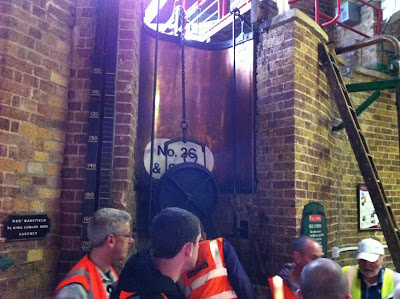
Between 10,000 and 15,000 years ago, some humans discontinued their nomadic hunting and gathering and settled down to farm. Grain was the first domesticated crop that started that farming process.
The oldest proven records of brewing are about 6,000 years old and refer to the Sumerians. Sumeria lay between the Tigris and Euphrates rivers including Southern Mesopotamia. It is said that the Sumerians discovered the fermentation process by chance. No one knows today exactly how this occurred, but it could be that a piece of bread or grain became wet and a short time later, it began to ferment
The Sumerians were able to repeat this process and are assumed to be he first civilized culture to brew beer. They had discovered a "divine drink" which certainly was a gift from the gods.
The word beer comes from the Latin word bibere, meaning "to drink", and the Spanish word cerveza originates from the Greek goddess of agriculture, Ceres.
A vitamin-rich porridge, used daily, beer is reported to have increased health and longevity and reduced disease and malnutrition. The self-medicating properties of
 alcohol-rich beer also eased the tensions and stresses of daily living in a hostile world.
alcohol-rich beer also eased the tensions and stresses of daily living in a hostile world. The use of yeast was not yet known at that time. The success of the fermentation process was left to chance, as the brewers unknowingly relied on yeast particles in the air.
Considerable scientific research took place in breweries in the 19th century. A famous work from 1876 by Louis Pasteur was Studies Concerning Beer where he revealed his knowledge of micro-organisms. By establishing that yeast is a living microorganism, Pasteur opened the gates for accurately controlling the conversion of sugar to alcohol.
Another discovery in beer brewing was the work of Christian Hansen. The Danish scientist, successfully isolated a single yeast cell and induced it to reproduce on an artificial culture medium. With the resulting yeast multiplication methods, the purity of the fermenting process has been improved and beer taste repeatable.

No comments:
Post a Comment